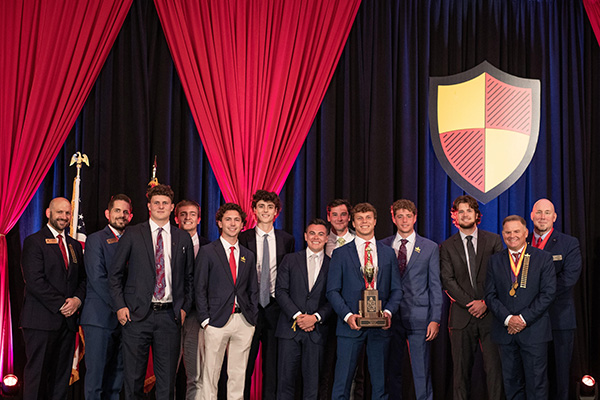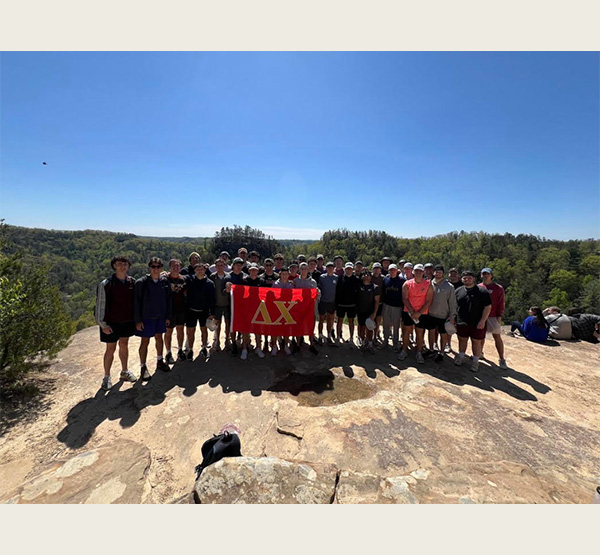Miami's Mental Health Incubator Fund highlights that ‘everyone across campus has a role’ in promoting, advancing student mental health
The next Mental Health Incubator Challenge is Oct. 1

Miami's Mental Health Incubator Fund highlights that ‘everyone across campus has a role’ in promoting, advancing student mental health

Delta Chi’s mental health retreat recognized
Cengia said the fraternity won the Chapter of Distinction Award named by the North American Interfraternity conference and given to only seven fraternities nationwide out of 6,100.
“One of the main reasons we were awarded it was because of our emphasis and contribution to men’s mental health, with the semesterly mental health retreat being a huge part of that,” Cengia said. “These achievements followed a semester in which the Miami Chapter of Delta Chi also won Miami University’s most coveted fraternity award, The Andrew Herman Chapter Excellence Award.”
The $2,300 Delta Chi received helped the fraternity with its mental health retreats, which began in fall 2021 and have been held every semester since.
“We understood the importance of mental health in the college community and, more specifically, the importance of the stigma against men’s mental health," said Corben Shoemaker '23, who created the fraternity's mental health retreat. "We saw that it was much more common for college men to avoid conversations that cause people to open up."
The funding helped them move the retreat off campus to remote areas such as Red River Gorge and Mammoth Cave in Kentucky. They wanted to add an element of adventure such as hiking, whitewater rafting, cave tours, and camping.
“We wanted to provide an environment for guys to open up and bond with one another outside of campus, so we introduced the mental health retreat as a new environment to grow closer to each other," Shoemaker said, identifying major takeaways from the retreats.
“The way that the retreats grew from semester to semester was proof at how much this time meant to not only the people who attended but to the community, as word spread of it being a fantastic experience,” he said. There were 13 at the first retreat “and now we host consistently 60-plus brothers (over half of the chapter).”
Another major takeaway? “The power that vulnerability brought," Shoemaker said.
“We had many attendees mention how much closer they felt to those around them. Many of the older brothers mentioned that they have been around some of their friends for two years, but after this retreat, it took only two days to feel like they truly know and understand their friends on a deeper level.”
For more Miami news, go to MiamiOH.edu/news.